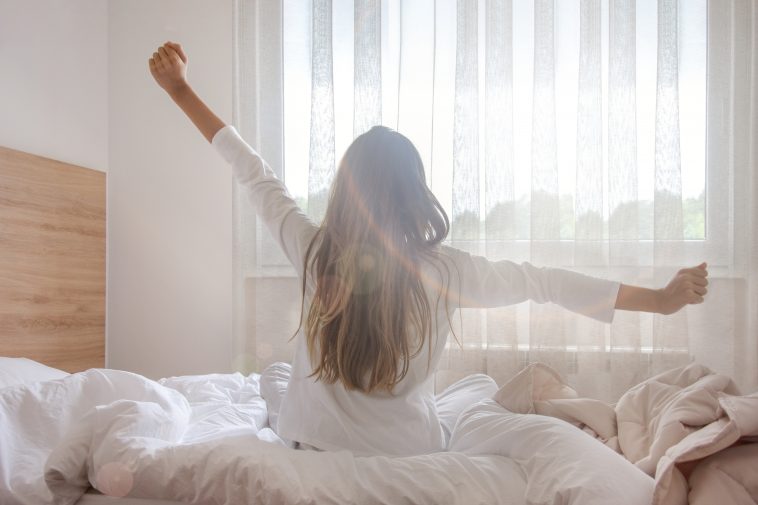Whether you have temporary insomnia or it’s been a life-long struggle, you might be holding onto some unhealthy sleep habits. It’s hard enough to turn our brains off at night after they’ve been racing all day. Our minds tend to go toward worries, which only keeps us up even later. The solution? Give your sleep habits a makeover. By just tweaking a few lifestyle changes, you can put an end to insomnia.
1. Set Your Alarm Clock for the Same Time Every Day
Waking up at a consistent time is more important than you might think. If you’re not naturally a morning person, it can be comfortable to hit the snooze button and sleep in. But for individuals with insomnia, training your body to wake up at the same time every day will provide a much-needed consistency.
2. Napping Can Contribute to Insomnia
Power naps can help you recharge occasionally, but consider eliminating all naps (especially ones that take place later on in the afternoon or evening) if you want to become more naturally tired around bedtime.
3. Work Out in the Morning
Working out generally can help make you sleepier at night by tiring you out and regulating your body functions. Exercising too close to bedtime, however, can leave you wired and up all night. It “activates” you in a sense. Instead, work out before noon so that you have time to get the natural effects of tiredness to kick in.
4. No Blue Light
Many of us have a terrible habit of using electronic devices before bed. But that blue light wakes up our brains, signaling that it’s daytime. Instead, try to stop using laptops and phones at least an hour before bedtime. If you usually fall asleep with TV, try doing it with calming music instead, keeping the room dark. This will also improve your REM sleep, which is necessary for your body to repair itself.
5. Avoid Eating Heavily Before Bed
We all love a good buffet, but overeating food before bed can lead to poor digestion, heartburn, and frequent waking in the middle of the night. Avoid this discomfort by eating spicier or heavier foods earlier in the afternoon, and eating a filling salad for dinner rather than something starchy or carb-heavy.
6. Don’t Work, Study, or Make Calls From Bed
The bed is for sleeping. Using it for other purposes will make it harder to sleep since you complete different activities in it. If you work from bed, you’re likely to think about work when you’re trying to sleep. Let your bed be a canvas for your dreams and nothing else!
7. Practice Deep Breathing and Yoga Before Bed
Opening up your breath and your muscles can naturally relax your body before bed – think of it as a self-massage. Remember to do a relaxing form of yoga that stretches you and relaxes the body, such as Yin Yoga. Along with meditation, you might consider buying a weighted blanket, which has been known to reduce stress and anxiety for some people.
8. Sleep in a Cool Room
If your blanket is too heavy or your room is warm when you sleep in it, this might be the cause of your insomnia. Around 68 degrees Fahrenheit is the ideal temperature to sleep in. When our temperature drops at nightfall, it’s a signal for our bodies to start slowing down. A cool bedroom reinforces our sleepy instincts, which helps us fall asleep faster.
Read more:



